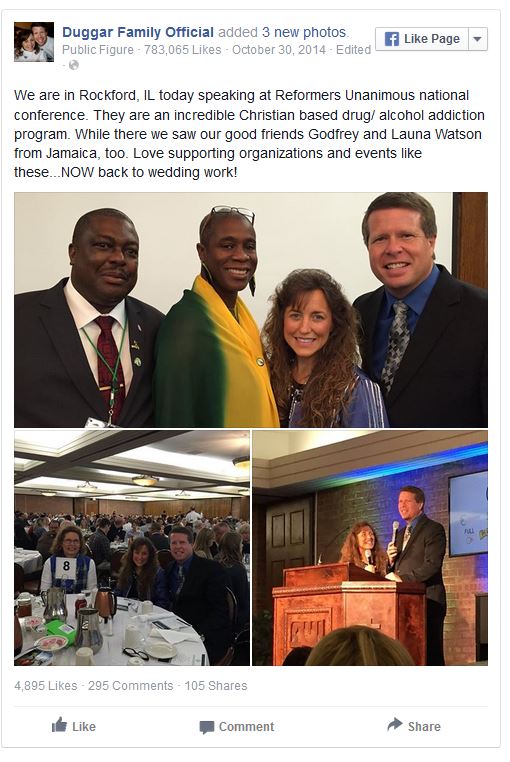
According to an upcoming study by the Barna Group titled The Porn Phenomenon, Christian pastors have a porn problem. While the full study will not be released until April 2016, Barna president David Kinnaman announced some of their findings:
Most pastors (57%) and youth pastors (64%) admit they have struggled with porn, either currently or in the past.
- Overall, 21% of youth pastors and 14% of pastors admit they currently struggle with using porn.
- About 12% of youth pastors and 5% of pastors say they are addicted to porn
- 87% of pastors who use porn feel a great sense of shame about it.
- 55% of pastors who use porn say they live in constant fear of being discovered.
- The vast majority of faith leaders who struggle with porn say this has significantly affected their ministry in a negative manner. It is not clear why, but youth pastors are twice as likely as pastors to report this kind of unfavorable impact.
I suspect that the stated number of pastors who are “struggling” with porn, “addicted” to porn, or currently using porn is underreported. It is not surprising to learn that youth leaders have a big problem with pornography. Youth pastors tend to be younger, often with the same raging hormones as the teenagers to whom they minister. I have long believed that Christian youth groups led by youthful pastors are havens for sexual abuse and misconduct. While churches have all sorts of policies in place that are meant to keep sexual misconduct from happening, rarely does a week go by without a youth pastor being arrested for some sort of sex crime. While these stories get all the press, the bigger story is the sexual misconduct that is covered up by church leaders and parents. Offending youth pastors are quietly fired or shipped off to Fundamentalist treatment centers such as Reformer Unanimous, the ministry that treated child molester Josh Duggar.
Evangelicals have all sorts of ministries and mechanisms they use to combat the “porn problem.” XXXchurch.com is a site dedicated to helping Evangelicals battle porn addiction. They offer things such as X3 groups, which are online meetings for Evangelicals who are struggling with porn. Evangelicals wanting “freedom from porn addiction, freedom from pain, freedom from guilt and shame and freedom from the very things that keep them trapped” will find help in one of XXXchurch’s 60 X3 groups. Joining one of these groups requires the payment of a $19-$39 a month membership fee.
XXXchurch also offers video workshops on subjects such as:
- Porn — Giving you a clear path to Sexual Freedom. This course will finally give you the steps to porn addiction recovery and healing.
- Sex — Helping you have Better Sex. This course will allow you to experience a deeper connection with your spouse and find greater intimacy.
- Accountability — Helping you discover a life of Character. This course will give you the tools to finally live a life of accountability and openness.
- Pre-Marriage — Everything you should know before Marriage. This course talks about great sex and other things your parents wouldn’t. A must for engaged couples.
- Parenting — Guiding you through parenthood and Tech. This course gives parents a solid foundation to build trust and openness with their children.
- Spouses — Helping women understand the visual nature of men. This course will give you the keys to understanding how the male brain works, thinks and responds.
Each of these workshops cost $97.
If Evangelicals are overwhelmed by porn and unable to break free, XXXchurch even offers one-on-one coaches who will help sinful Christians overcome their porn addiction. This personal attention doesn’t come cheap:
- The Standard plan costs $300 a month. For this fee, Evangelicals receive a 1-hour-a-week coaching session and daily chat access with their coach.
- The three-month Plus plan costs $700. For this fee, Evangelicals receive a 1-hour-a-week coaching session, daily chat access with their coach, Free X3watch Premium annual subscription, FREE X3pure recovery video workshop, and FREE X3groups
- The Ultimate plan costs $1,500 and includes 7 months of Plus plan services.
According to the XXXchurch website, having a coach will help the porn addict:
- Identify what triggers you sexually and how to resolve those triggers in a healthy manner
- Minimize high risk scenarios that often lead to acting out
- Seal up the leaks in your game that cause stress, and other emotional triggers
- Find, form and foster healthier relationships
- Discover the secret sauce of real accountability
XXXchurch is a nonprofit, but something tells me that Craig Gross, the man behind the “ministry,” has handsomely profited from helping Evangelicals with their porn addiction.
A new player in the porn addiction game is Seth Taylor. Taylor offers a program he calls My Pilgrimage (based on the book, Feels Like Redemption). For $399, Evangelical porn addicts receive:
…a four-module approach to finding freedom from pornography and masturbation. It starts with upending everything you thought you knew and ends with complete and total freedom. This book, guidebook, video curriculum, and small group will change everything.
Like Gross, Taylor has found a way to turn sex, guilt, and shame into a moneymaking business.
For Evangelical porn addicts who can’t afford the services of XXXchurch or My Pilgrimage, “ministries” such as Covenant Eyes offer what is advertised as “internet accountability and filtering.” For $13.99 a month Evangelical families can use Covenant Eyes’ services to filter internet traffic and block access to pornography and other objectionable material. Each family member is given a username that allows Covenant Eyes to track their internet usage. On a daily basis a report is sent to parents detailing who viewed what. Adults who are addicted to porn can have their wives or pastors be their accountability partners. Each day their porn gatekeepers receive a report showing the addicts’ internet activity.
The next time you to go to a Sunday service at I Love Jesus Church, located at the corner of Self-Righteousness and Moral Superiority, just remember that it is likely that the pastor and some of the church members were surfing porn sites the night before. When the pastor stands behind the pulpit and preaches against masturbation, pornography, fornication, adultery, and homosexuality, don’t forget that he is likely a hypocrite, a man who says one thing but does another.
Forget all these “ministries” that prey on Evangelical fear, guilt, and shame. While I am sure there is such a thing as porn addiction, most so-called porn addicts are weak men (and women) who are unwilling to stop looking at pornography. Instead of manning up and being personally accountable for their behavior, Evangelical men are taught that they are morally crippled and helpless. Evangelicals are led to believe that without Jesus and the church, they would quickly slide down the path of moral decadence. Yet, even WITH Jesus and the church, Evangelicals generally sexually behave in a similar manner as their heathen counterparts in the world. Perhaps Jesus and salvation is not the sin antidote Evangelicals claim it is. In fact, isn’t the very existence of ministries such as XXXchurch and Covenant Eyes proof that the supposed moral superiority of Evangelicals is largely a fiction? If Evangelical pastors can’t practice what they preach, what hope is there for parishioners? (Please see Is Clergy Sexual Infidelity Rare?)
Perhaps it is time for Evangelicals to seriously question their beliefs concerning sin and human sexuality. Instead of shaming people over their use of porn, perhaps churches would be better served if parishioners were taught how to embrace their sexuality. Porn is not the problem. While I have my own ideas about porn, having viewed it a time or two myself, I know that most people can look at pornographic magazines or watch videos on YouPorn without turning into sexual miscreants. While I am sure that secular counselors work with sex/porn addicts, this obsession with pornography and sex addiction is largely an Evangelical phenomena. Perhaps Evangelicals need to take a hard look at WHY they have such a big porn and sexual misconduct problem. Perhaps Evangelical THEOLOGY, with its focus on sin, shame, guilt, fear, and Puritanical sexuality, is the problem.
For readers interested in what science has to say about porn and sex addiction, I will end this post with an excerpt from an article titled Your Porn Addiction Isn’t Real, written by The Daily Beast contributor Samantha Allen:
The last time neuroscientists Nicole Prause (Liberos LLC at UCLA) and Vaughn Steele (Mind Research Network) published on porn addiction, they received six legal threats, several calls for a retraction, and anonymous emails telling them to kill themselves.
Their controversial claim: “porn addiction” isn’t actually an addiction, at least in the sense that it does not neurologically behave like other well-documented addictions.
For therapists that treat porn consumption on an addiction model and for religious groups like Focus on the Family that are invested in maintaining a concept of “porn addiction,” the research undermines the clinical language they used in their approach to the controversial medium. But conclusive evidence for “sex addiction” and “porn addiction” continues to prove elusive.
Today, Prause, Steele, and their team of researchers are back with a new study, published in the journal Biological Psychology, that only reaffirms their previous findings: “porn addiction” and “sex addiction,” as we understand them, may not be real.
In what is now the largest neuroscience investigation of porn addiction ever conducted, Prause and a team of UCLA-based researchers asked 122 men and women to answer questions about their relationship to “visual sexual stimuli” to determine if they experienced problems as a result of their porn usage.
Whether the subjects were “problem users” or not, they were all shown several categories of images—pleasant ones like skydiving photos, neutral ones like portraits, unpleasant ones like mutilated bodies, and, of course, sexual images—while hooked up to an electroencephalogram (EEG), a device that measures electrical activity in the brain.
From this body of data, researchers examined each subject’s late positive potential (LPP), a common measure for the intensity of the brain’s emotional response at a given moment. The results were clear: Subjects who reported experiencing problems as a result of their pornography use did not display characteristically addictive brain activity when viewing sexual images.
As Greg Hajcak, a Stony Brook University researcher on the study, points out, a cocaine addict will experience “increased LLP to cocaine-related pictures”—one of the clearest indicators of psychological addiction.
But even subjects in the study who experienced “major problems” related to their porn usage didn’t display this same LLP pattern when viewing sexual images. In fact, as the researchers note, they “showed decreased brain reactions when shown the sexual images, rather than heightened activity”—the opposite of what one would expect to find in an addict’s brain.
Some self-described “porn addicts” may experience legitimate problems as a result of their habits, the researchers are quick to clarify, but neurologically speaking, they do not appear to have the same relationship to porn as a substance addict has to their drug of choice. In other words, porn and sex addictions are probably not addictions and treating them as such could prove counter-productive.
“This study appears to add to a list of studies that have not been able to identify pathology consistent with substance addiction models,” the authors conclude.
So far, the American Psychiatric Association (APA) has agreed that there is insufficient evidence to support diagnoses for sex and porn addiction. In 2010, the APA rejected the inclusion of “sex addiction” in the Diagnostic and Statistical Manual of Mental Disorders (DSM). A new condition called “hypersexual disorder” was proposed for the DSM-5 but, in 2012, the APA rejected it as well for lack of evidence.
Note
XXXchurch offers an online sex addict test for those who wonder if they are addicted to sex and/or porn.
The Mormons have a porn addiction problem, as do Catholics.

